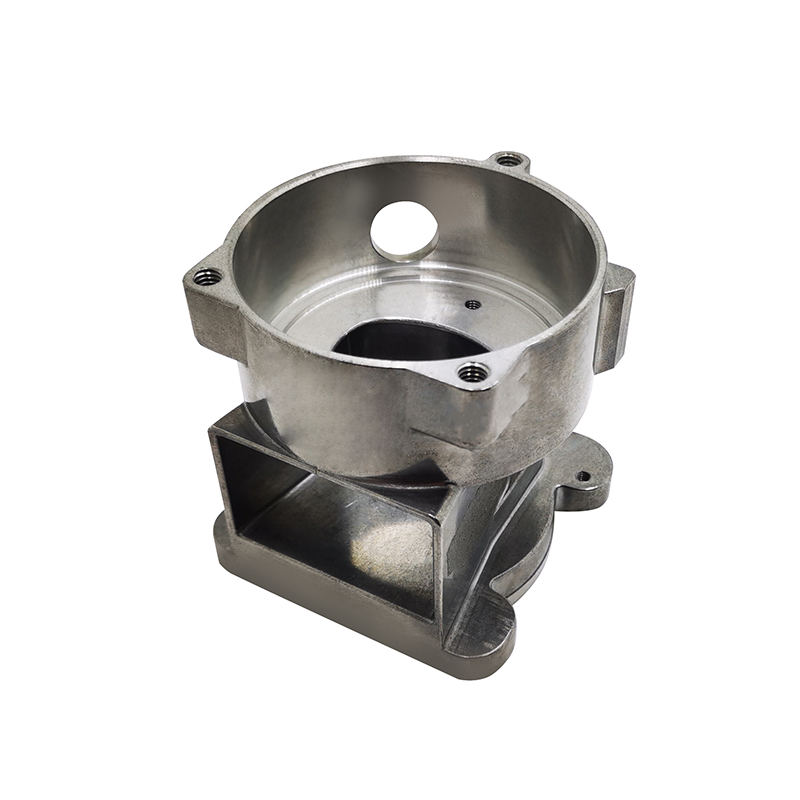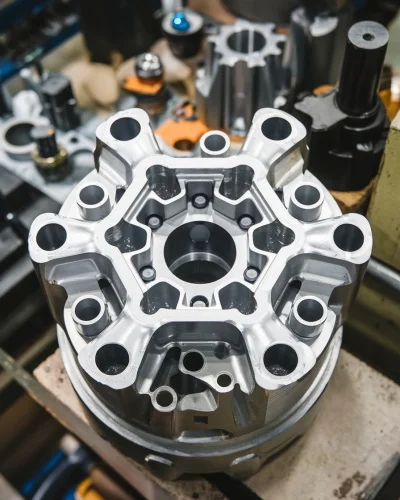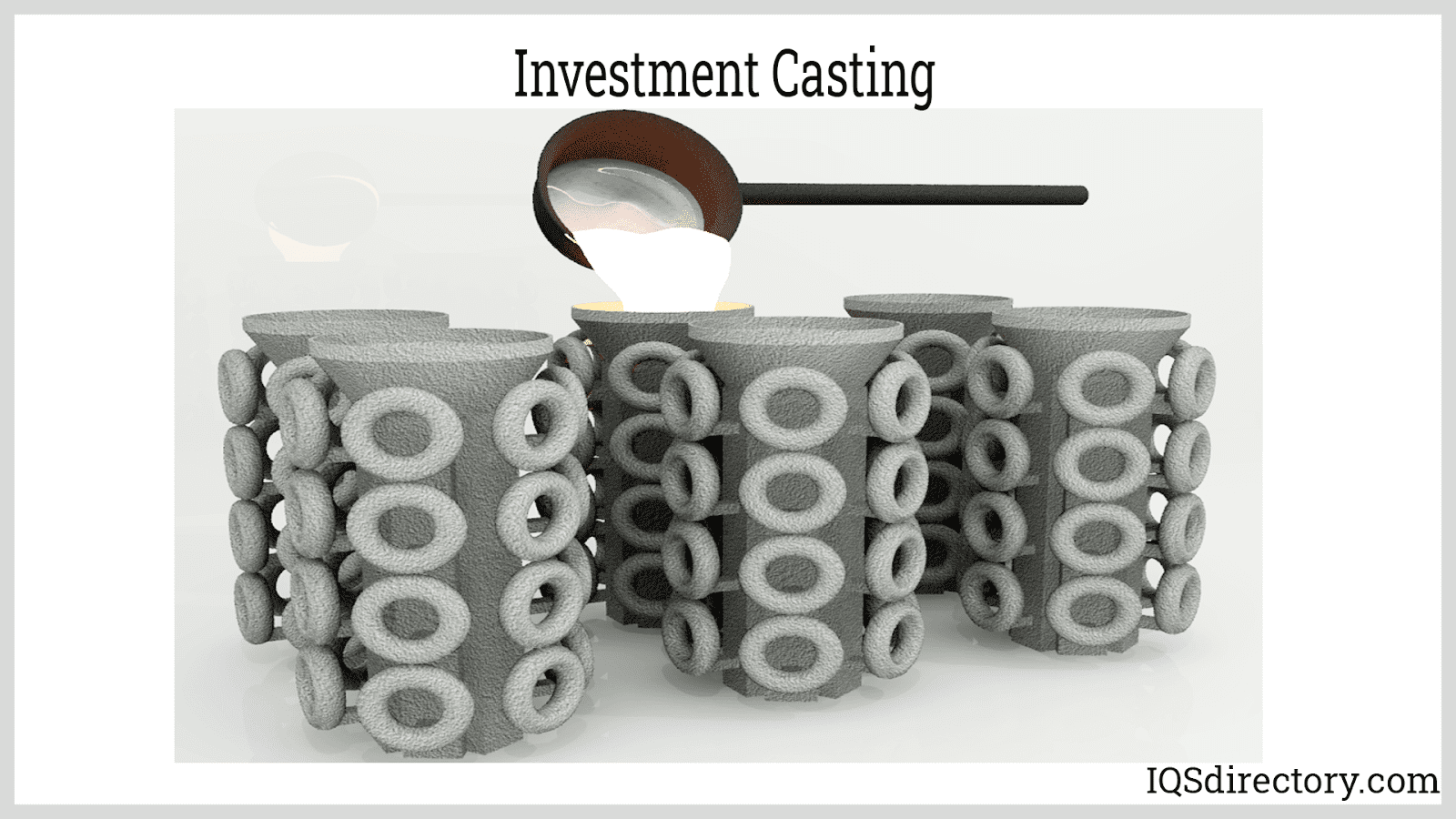How Foundry Services Enhance Manufacturing Performance and Top Quality in Industrial Applications
Shop solutions play an important duty in boosting manufacturing effectiveness and quality throughout different industrial applications. By applying advanced steel spreading techniques, these services assure elements are made with precision and uniformity. This not just lowers lead times yet also reduces waste, promoting much better collaboration in between factories and makers. The influence of top quality elements on functional efficiency elevates essential concerns regarding the future of industrial manufacturing. What technologies exist ahead in this evolving landscape?
The Function of Foundry Services in Streamlining Production Processes

Foundries frequently supply knowledge in alloy advancement, enabling suppliers to make use of innovative products that boost product performance. The cooperation between factories and makers promotes a much better understanding of production requirements, resulting in optimized procedures and enhanced product layouts. By leveraging shop solutions, suppliers can achieve higher versatility, adjust to changing market demands, and maintain competitiveness in the sector. In general, the role of shop solutions is crucial in facilitating an extra cost-efficient and reliable production landscape.
Advanced Technologies in Factory Procedures
Cutting-edge technologies are changing shop operations, substantially boosting performance and precision. Automation plays an important duty, with robotic systems improving recurring jobs such as molding and product handling. Furthermore, innovations in computer-aided design (CAD) and computer-aided production (CAMERA) systems make it possible for shops to produce complicated geometries with higher precision and minimized product waste.
The assimilation of synthetic intelligence (AI) and equipment learning enhances high quality control by keeping track of procedures in real-time and forecasting potential defects prior to they take place. Making use of innovative materials, such as lightweight alloys and compounds, further improves the efficiency features of actors items.
Additionally, 3D printing technology is revolutionizing prototyping and tooling, enabling fast customization and minimized lead times. Jointly, these innovative modern technologies not just boost production efficiency yet additionally assure that the last products meet rigid top quality criteria, placing foundries at the center of contemporary industrial applications.
Decreasing Lead Times Via Effective Foundry Practices
Efficient shop techniques play a vital role in decreasing preparations within manufacturing environments. By implementing streamlined production processes and advanced scheduling strategies, suppliers can boost workflow and maximize source allowance. These improvements not only increase result but also contribute to total functional efficiency.
Structured Manufacturing Procedures
Simplifying manufacturing procedures is important for lowering preparations in the production industry. Effective shop methods, consisting of enhanced process and resource monitoring, play a vital function in accomplishing this objective. By reducing waste and improving communication amongst groups, shops can significantly improve their operational efficiency. The execution of standardized treatments also adds to constant top quality and faster turnaround times, allowing manufacturers to respond even more swiftly to market needs. Additionally, the assimilation of advanced modern technologies, such as automation and real-time tracking systems, assists in determining bottlenecks and assisting in prompt treatments. Overall, a focus on streamlined production processes not only accelerates lead times yet likewise boosts the overall competitiveness of industrial applications, making certain that items meet client assumptions successfully.
Advanced Scheduling Techniques
Reliable production processes normally lead makers to check out innovative organizing methods as a way to better minimize lead times. By using innovative formulas and software, factories can maximize operations, aligning production timetables with need projections and resource schedule. Techniques such as Just-In-Time (JIT) organizing lessen supply prices while making sure prompt material distribution, thereby boosting operational efficiency. Additionally, incorporating real-time data analytics allows factories to prepare for prospective hold-ups and readjust schedules proactively. This flexibility not only improves procedures yet additionally improves overall efficiency. Furthermore, collective preparation with vendors and consumers can foster a more synchronized supply chain, additional decreasing lead times. Inevitably, these innovative organizing techniques equip foundries to attain higher efficiency and exceptional high quality in their manufacturing procedures.
Making Sure Accuracy and Quality in Steel Spreading
Ensuring accuracy and quality in steel spreading needs a meticulous method that includes every phase of the production process. This process starts with cautious style and design of the mold and mildews, ensuring they can hold up against the liquified metal's temperature level and pressure. The choice of top notch resources is crucial, as impurities can compromise the final item.
Once the products are prepared, exact temperature level control during melting and putting is fundamental to achieve the desired buildings in the cast steel. Keeping track of solidification and cooling rates further warranties dimensional precision and surface area coating.
Quality control methods, such as non-destructive testing and evaluation, are important to determining defects early while doing so. aluminum casting. Additionally, using proficient workers who recognize the subtleties of metal spreading contributes considerably to maintaining high standards. Overall, these techniques jointly improve the reliability and performance of cast components in different industrial applications
Reducing Waste and Maximizing Resource Utilization

Additionally, reusing scrap steel within the shop itself can significantly reduce waste, changing spin-offs right into useful sources. Lean manufacturing concepts additionally add to throw away decrease by enhancing processes and removing unneeded steps, bring about a lot more reliable operations.
Normal upkeep of devices assurances peak efficiency, avoiding malfunctions that can result in wasted products. By concentrating on these techniques, foundries not only decrease prices however also add to sustainable practices, straightening with the growing need for ecologically liable manufacturing approaches in industrial applications.
The Affordable Benefit of High-Quality Elements in the Market
Premium components give a significant competitive benefit in the foundry market, where accuracy and durability are extremely important. Makers that focus on exceptional materials and workmanship can improve product performance and integrity, causing increased consumer fulfillment. This benefit is specifically apparent in sectors such as automobile and aerospace, where element failure can have disastrous repercussions.
Moreover, top quality elements often cause reduced maintenance expenses and expanded product life-spans, which can be enticing marketing points for possible clients. As market needs grow for reliable and sustainable innovations, the emphasis on top quality comes to be even extra vital. Companies that buy high-quality foundry solutions not only enhance their production procedures however also separate themselves from rivals that might sacrifice high quality for price financial savings. Consequently, the dedication to top quality components eventually translates right into a more powerful market setting and long-term organization success.
Regularly Asked Inquiries
What Sorts of Products Do Factory Solutions Commonly Deal With?
Foundry solutions commonly collaborate with metals such as light weight aluminum, brass, iron, and steel, in addition to numerous alloys. They also deal with products like ceramics and compounds, satisfying varied industrial demands and specs in manufacturing procedures.
Just How Do Shop Solutions Impact Overall Supply Chain Administration?
Shop solutions considerably boost supply chain monitoring by improving material sourcing, decreasing preparations, and making certain regular top quality. Their capability to give tailored options promotes partnership among stakeholders, ultimately improving overall functional performance and responsiveness in manufacturing.
What Industries Benefit Most From Factory Providers?
Industries such as vehicle, aerospace, building and construction, and customer products greatly take advantage of factory services. These markets rely upon precision castings to meet rigid high quality criteria you can try these out and enhance their overall manufacturing processes and item efficiency.
Are Factory Solutions Lasting and Eco-friendly?
Factory solutions can be ecologically friendly and sustainable, particularly when employing sophisticated technologies and procedures - Aluminum Casting Company. Technologies such as reusing products, lowering emissions, and optimizing energy use contribute to lessening their eco-friendly impact in commercial applications

How Can Companies Choose the Right Factory Service Service Provider?
Companies can select the best factory company by reviewing proficiency, production capacities, high quality qualifications, modern technology made use of, customer evaluations, and sustainability techniques while guaranteeing positioning with their specific project demands and long-lasting company goals.
Foundry solutions play an essential function in boosting production effectiveness and high quality throughout different industrial applications. The cooperation in between shops and makers promotes Find Out More a far better understanding of manufacturing demands, leading to maximized procedures and boosted product styles. Efficient factory methods play an important duty in reducing lead times within manufacturing environments. By using sophisticated formulas and software, foundries can maximize process, straightening manufacturing routines with demand projections and source schedule. Firms that invest in high-quality factory solutions not only boost their production processes however also differentiate themselves from rivals that might give up high quality for expense savings.